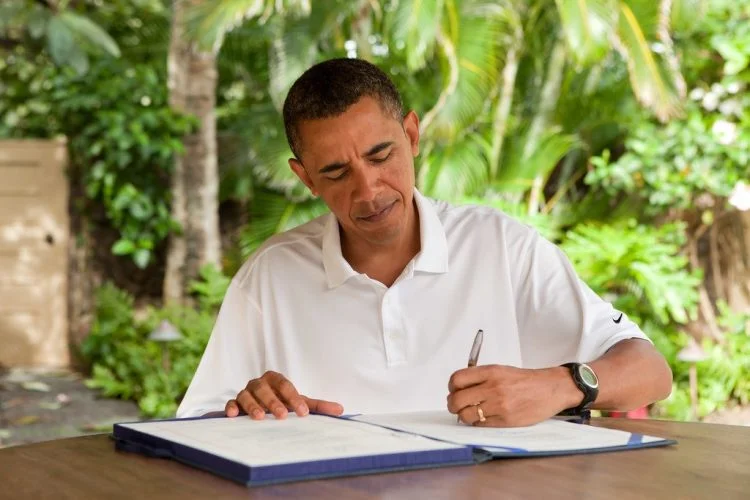
In January 2011, President Barack Obama signed HR 847 (titled the James L. Zadroga 9/11 Health and Compensation Act of 2010) that provides for medical monitoring, treatment and compensation for Ground Zero First Responders and residents of lower Manhattan and parts of Brooklyn (Survivors)
The bill was enacted into law a few days before the fifth anniversary of NYPD Detective James L Zadroga’s death.
Zadroga had actively participated in the rescue and recovery efforts “Ground Zero Debris Clearance” at the former World Trade Center site. Within the 450-plus hours, while sifting through the debris, he became exposed to toxic fumes and other dangerous substances. As a result of such exposure, Zadroga developed a number of medical conditions including respiratory illness, black lung disease, and mercury contamination of the brain.
At the time of the exposure, Zadorga’s medical conditions were not covered for treatment by the NYPD’S Medical Division. In 2004, the September 11th Victim Compensation Fund determined that his respiratory illness was linked to the dust and awarded him a substantial monetary settlement. Later that year, the New York City Police Pension Fund, also concluded that his illness was related to the dust and approved his application for an Accidental Disability Retirement Pension. In January 2006, after a long battle, Zadroga succumbed to his illnesses.
Summary and Analysis
The Zadroga Act, of which passage several members of Congress had attempted to block, was enacted to ensure that World Trade Center responders and residents of lower Manhattan and parts of Brooklyn (survivors) receive medical and economic support for medical conditions and injuries related to the World Trade Center disaster.
World Trade Center Health Program
The Zadroga Act established the World Trade Center Health Program (WTCHP) within the Department of Health and Human Services (HHS) to provide medical monitoring and treatment benefits to eligible World Trade Center (WTC) responders and residents of lower Manhattan and parts of Brooklyn (referred to as survivors). Eligibility for benefits include: responders, survivors and others. Covered conditions include: Aerodigestive disorders and mental health conditions. WTC responders may also be covered for the following conditions if they have received treatment before September 11, 2003: lower back pain, carpal tunnel syndrome, or other musculosketal disorders. Eligible responders are entitled to all medically-necessary treatment related to their covered conditions. Eligible survivors are entitled to an initial health evaluation to determine eligibility for follow-up monitoring and treatment and certified-eligible WTC survivors are eligible for medically necessary follow-up and treatment of covered conditions.
Guidelines and other information are available at the WTCHP website or you may call the WTCHP Hotline: 1-888-WTC-HP4U or 1-888-982-4748.
September 11th Victims Compensation Fund of 2001 (VCF)
The Zadroga Act reopens the September 11th Victims Compensation Fund of 2001 (VCF) which was previously closed to new applicants on December 22, 2003. The deadline for filing new VCF claims, with the exception of claims filed in the extended period, is two years after updated regulations are published. After this two year period, claims may be filed under the extended filing period for an additional three years, provided the claimant received medical treatment for his or her injury and files within two years of the date updated regulations are published or within two years of when he or she knew, or should have known, that the injury was related to the World Trade Center disaster. Eligibility for the VCF include: persons who suffered physical harm during debris removal and related activities at the WTC, Pentagon, and Shanksville, Pennsylvania sites. No person may be eligible for the VCF if he or she is a party to a civil action, unless he or she withdraws form such action within ninety days of the date the VCF regulations are updated. Persons who settled any civil case filed on or before December 20, 2003 may not receive a VCF payment.
Claimants have the option of submitting claims on their own or with the assistance of an attorney. The Zadroga Act limits the fees that may be paid to an attorney in connection with the filing of a VCF claim to ten percent of that award. The Special Master may further limit attorney fees if he or she feels that ten percent constitutes excessive compensation for services rendered on a claim.
Guidelines and other information is available at the VCF website or you may call the VCF Hotline: 1-855-885-1555 (or 1-855-855-1558 for the hearing impaired).
If you are a World Trade Center responder, survivor or other person affected by the World Trade Center Disaster, and you are interested in determining your claimant and/or Accidental Disability Retirement Pension rights, call The Sanders Firm, P.C. for a free consultation. The Sanders Firm, P.C., your voice for justice.




